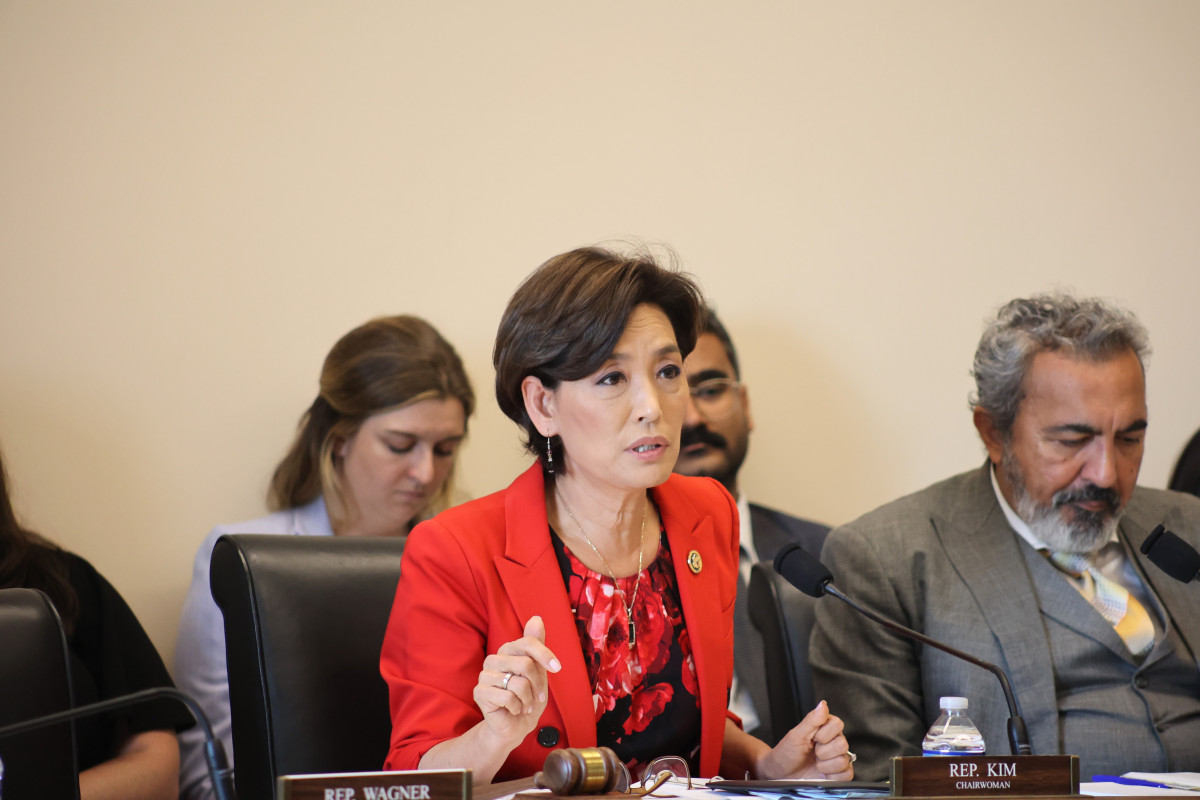Washington, DC – As first reported in Washington Examiner, yesterday, U.S. Representative Young Kim (CA-40) led a letter to the Defense Security Cooperation Agency and the State Department’s Bureau of Political-Military Affairs demanding answers about damaged defense arms being sent to Taiwan.
On September 11, 2024, the Department of Defense Office of the Inspector General (OIG) published a troubling report on damaged equipment provided to Taiwan under the U.S. Presidential Drawdown Authority (PDA).
The members ask several questions about the Department of Defense’s and State Department’s improper handling and delivery of defense equipment to Taiwan.
Rep. Kim was joined in sending the letter by Reps. Joe Wilson (SC-02), Chris Smith (NJ-04), Brian Mast (FL-21), James Moylan (GU-AL), Cory Mills (FL-07), Mike Lawler (NY-17), Keith Self (TX-03), Rich McCormick (GA-06), and Darrell Issa (CA-48).
As of September 2024, Taiwan has yet to receive $24.24 billion worth of equipment and munitions. In the 117th Congress, Rep. Kim introduced the bipartisan Arms Exports Delivery Act (H.R. 8259), which became law through the FY23 NDAA, to track transfers and ensure efficient and timely delivery of U.S. defense equipment already sold to Taiwan and other Indo-Pacific allies. However, efforts to expedite arms delivery through PDA are meaningless if the products are inoperable.
“On September 11, 2024, the Department’s Office of the Inspector General (‘OIG’) published a troubling report on damaged equipment provided to Taiwan under the PDA. The report finds that Taiwan received moldy body armor and expired munitions after loosely packaged bundles of equipment endured poor weather conditions for months; more than two-thirds of the equipment were left ‘unserviceable’. From November 2023 to March 2024, the Department failed to ‘effectively or efficiently implement accountability and quality controls’ for military equipment transfers to Taiwan, resulting in more than $730,000 in labor and replacement costs. This is unfair to Taiwan who already purchased the equipment and American taxpayers who must ultimately pay for the Department’s negligence,” the members wrote.
Read the full letter HERE or below.
We write to you to express our disappointment and concern with the recent revelations of the Department of Defense’s (“Department”) improper and inexcusable handling and delivery of defense equipment to Taiwan. As the Chinese Communist Party ramps up its hostile rhetoric and provocations in the Taiwan Strait, timely deliveries of operational equipment that Taiwan has already purchased from the U.S. are imperative.
On September 11, 2024, the Department’s Office of the Inspector General (“OIG”) published a troubling report on damaged equipment provided to Taiwan under the PDA. The report finds that Taiwan received moldy body armor and expired munitions after loosely packaged bundles of equipment endured poor weather conditions for months; more than two-thirds of the equipment were left “unserviceable”. From November 2023 to March 2024, the Department failed to “effectively or efficiently implement accountability and quality controls” for military equipment transfers to Taiwan, resulting in more than $730,000 in labor and replacement costs. This is unfair to Taiwan who already purchased the equipment and American taxpayers who must ultimately pay for the Department’s negligence.
Foreign Military Sales (“FMS”) and the U.S. Presidential Drawdown Authority (“PDA”) process are key to equipping Taiwan, yet delivery backlogs undermine Taiwan’s deterrence posture and the U.S. commitment to the island’s defense. As of September 2024, Taiwan has yet to receive $24.24 billion worth of equipment and munitions, with $9.82 billion of pending deliveries being delayed. This sends the wrong message to Xi Jinping who is closely watching for the right opportunity for “reunification” with Taiwan. Commonsense and bipartisan legislation like H.R. 8259, the Arms Exports Delivery Solutions Act, signed into law through the FY23 NDAA, provides necessary Congressional oversight of FMS to U.S. allies and partners. Further, the Biden administration recently announced another $567 million in defense aid for Taiwan under the PDA.6 However, efforts to expedite delivery times are meaningless if the products are inoperable.
Section 506(a)(3) of the Foreign Assistance Act of 1961 grants the Secretary of State the authority to direct the presidential drawdown of defense articles to Taiwan. The Defense Security Cooperation Agency (“DSCA”) is then responsible for executing presidential drawdown activities. We respectfully ask DSCA and the State Department’s Bureau of Political-Military Affairs to provide written responses to the questions below. We also request a classified briefing on steps taken by both agencies to ensure this never happens again. Taiwan and our allies are counting on the United States to deliver on our promises.
Questions for Defense Security Cooperation Agency:
1) From November 2023 to March 2024, please describe in detail DSCA’s role in executing and supervising delivery of presidential drawdown items to Taiwan.
a. What were DSCA’s main priorities and goals during this process?
b. Did DSCA face any challenges to effectively carrying out arms delivery to Taiwan?
2) Prior to the OIG’s September 2024 report, was DSCA aware of damaged equipment and
expired munitions being sent to Taiwan?
a. If so, what immediate steps did DSCA take to mitigate this?
3) Did DSCA fully implement OIG’s recommendations outlined in the September 11 report?
a. If so, please describe in detail the specific changes made or in progress.
b. Were there any recommendations that DSCA rejected or proposed an alternative
to, and if so, why?
4) What other measures is DSCA implementing to prevent delivery of defective and damaged equipment and regain the confidence of our allies?
Questions for Bureau of Political-Military Affairs:
1) Please describe in detail the State Department Bureau of Political-Military Affairs’ authority and oversight role in the PDA process, including during delivery, according to Section 506(a)(3) of the Foreign Assistance Act of 1961.
2) What is your plan to ensure that the recommendations offered by the OIG are executed by DSCA?3) What additional reforms should be made to improve the overall PDA process under Section 506(a)(3) of the Foreign Assistance Act of 1961?




